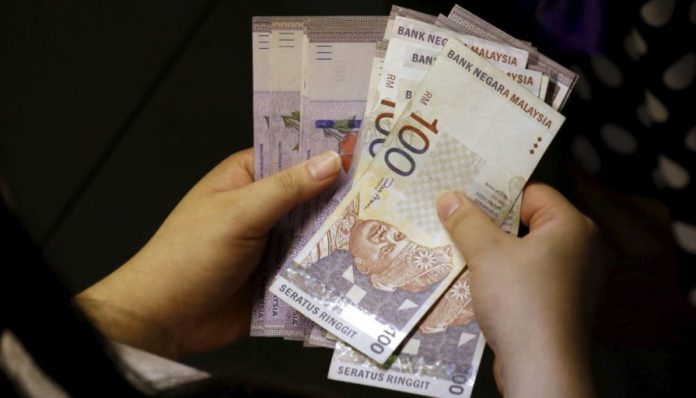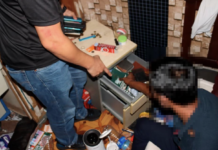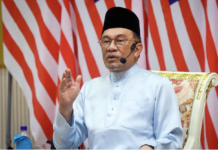KUALA LUMPUR, June 6 — The Bumiputera community should inculcate savings and investment habits to protect themselves, particularly in the event of a financial emergency, a non-governmental organisation (NGO) said.
Majlis Perundingan Melayu secretary-general Datuk Dr Hasan Mad said saving and investing are unpopular habits among Bumiputera as only a small number of households from the community practised such culture.
“In other words, a majority of the Bumiputera are having a serious issue of good habits or good culture.
“Due to the lack of this habit or culture, it will be difficult for the next generation of Bumiputera to start a business because they will not have the required seed capital of their own to start a venture,” Hasan told Bernama.
Hence, this habit has a direct effect on the effort to encourage the next generation of Bumiputera to become entrepreneurs, as they can only star a business on borrowed money or government grants, he added.
Bumiputera retailers currently constitute about 0.3 per cent on Bursa Malaysia, Hasan said, adding that this reflects the lack of interest to invest even for themselves, much less for the next generation.
“Even investment in Amanah Saham Bumiputera was relatively low, including among the M40 segment, let alone the stock market.
“This is simply because even among those who have the means to invest, they lack the habit or desire to study the daily performance of the stock market,” he said.
If one were to indulge in investment, especially in the stock market, one should have an interest in studying how the market performs, he pointed out.
“This is another form of cultural issue or cultural challenge the Bumiputera is facing.
“A majority of them are trapped with excuses as well, especially on the pretext of relatively small savings per household, as well as a limited number of shariah-compliant counters available for them to choose from,” Hasan said.
According to the Mid-Term Review of the 11th Malaysia Plan (2016-2020) Report released in October 2018, the government will continue to emphasise Bumiputera participation in strategic investments towards achieving the target of at least 30 per cent corporate equity ownership.
The report said Bumiputera-related institutions, especially state-owned corporations (SOCs), would continue to invest in high-growth companies and companies listed on Bursa Malaysia, as well as venture into potential companies as a minority shareholder.
Hasan said since the advent of the New Economic Policy (NEP), the 30 per cent equity control has always been the target as part of its three main thrusts, apart from job and business creation, besides bridging economic divide and eradicating poverty.
The NEP, which began with the Second Malaysia Plan (1971–1975), and lasted until the Fifth Malaysia Plan (1986–1990), had three main objectives, namely achieving national unity, harmony, and integrity through socio-economic restructuring of the society.
“Somehow, we are still struggling despite so many efforts. In the end, the Bumiputera Equity Creation Programme just vapourised into thin air,” Hasan said.
On other measures that could be done to boost Bumiputera participation in corporate equity ownership, he said the government had already created hundreds of SOCs in many categories, including public enterprise agencies and federal agencies of Bumiputera-interest, especially Majlis Amanah Rakyat (Mara).
Hence, he said, it is not the issue of not having an idea of what to do.
Hasan noted that it is all about whether people are capable, competent and passionate enough in providing good leadership and/or good management to institutions of Bumiputera interest, especially that of government-linked companies, government-linked investment companies, and state-owned Islamic corporations.
On issues confronting Bumiputera-owned Serba Dinamik Holdings Bhd, he said the oil and gas services firm must react quickly to correct public perception as the capital market was vulnerable to opinion, perception and speculation.
He asserts that a better response to the concerns surrounding Serba Dinamik, which has been in the spotlight due to issues pertaining to statutory audit, needs to be raised as it would lead to better or compromised solutions.
“It happened to Serba Dinamik at a time when the nation was not in a financial crisis, thus, it was an isolated incident. So, it caught public attention.
“Very unfortunate for Serba Dinamik, the institutional subscribers of the counter are pressing the panic button too soon and there is no Bumiputera equity safety net agency to come in to buy out and keep the disposed stocks,” he added.
Hasan noted that should either option come into play, the crash or the damage could be contained significantly.
“Bear in mind that Serba Dinamik is a ‘new kid on the block’ with less than five years experience compared with the big boys in the capital market.
“Sooner or later they must experience the acid-test of the market,” he noted, adding that, unfortunately for Serba Dinamik, it happened too soon and the company was caught off guard.
“I believe they have the stamina and the strength to bounce back and become a much better player in the real market world,” he added.
















